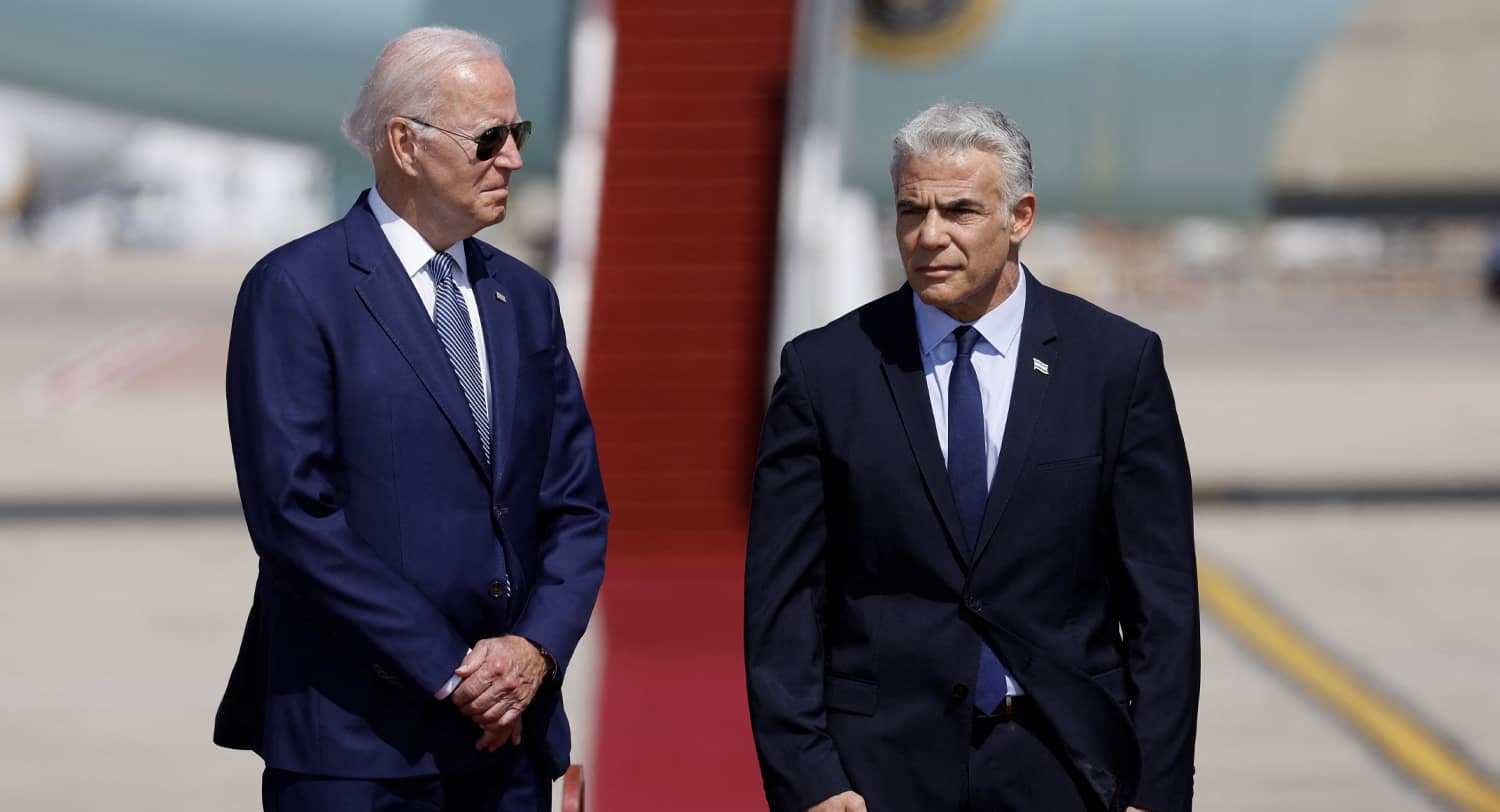In mid-August 2022, reports began to spread in Israel’s political class about Iran’s willingness to compromise in the ongoing negotiations over a revived Joint Comprehensive Plan of Action (JCPOA). This has led to a fear that the Biden administration may finally be within reach of a deal, which would put billions in Iran’s coffers and fuel its regional ambitions.
>> Insights from Israel: Read more from our columnists
Israel, in response, sent a series of leaders to engage Washington. National Security Adviser Eyal Hulata (a nuclear physicist by training, with a keen understanding of the specifics of what is at stake) visited on August 23, followed shortly afterward by Minister of Defense Benny Gantz, who also visited Central Command headquarters in Florida. It took a few more days for the interim prime minister, Yair Lapid, to arrange an hour-long conversation with President Biden, which, according to both readouts, was almost entirely devoted to aspects of the Iranian challenge. To round off the effort, the chief of the Mossad, David Barnea—known to be a fierce critic of the emerging deal—came to Washington to speak to key intelligence and policy officials. Significantly, the original plan was for him to testify before the Senate Select Committee on Intelligence, but this was scratched, probably at the administration’s request. Lapid has no wish to follow in Netanyahu’s footsteps in challenging a US administration in Congress
Given Lapid’s declared reluctance to butt heads with Biden, what does Israel still hope to achieve? The Israeli security establishment and the political class are well aware of two things. Biden—in stark contrast with his predecessor—wants a deal and has no wish to use force to put an end to Iran’s defiance. At the same time, Biden is a genuine friend who is not naive about Tehran. The American hopes that attended the JCPOA in 2015 have all dissipated. Iran is an adversary, not a prospect for reform; hence the reluctance to accede to Iran’s whims.
Balancing these two verities, the Israeli leadership is focused on several goals in this intense campaign. To begin with, it seeks to “move the needle” on specific issues with the US. These include, above all, the inspections regime and the ongoing investigation into the possible military dimension of Iran’s nuclear program; namely, the findings by the International Atomic Energy Agency clearly indicate that illicit weapons-related activities have been taking place in several sites in Iran. There are also the questions of non-nuclear related sanctions and the listing of the Iranian Revolutionary Guard Corps as a state sponsor of terror. The continued pursuit of the possible military dimension, in particular, may mark the difference between a deal aimed at enforcing the Non-Proliferation Treaty of 1968 and one that would lead the treaty in its entirety to an early grave. Thus, Israel’s persuasive energies under Lapid—as distinct from Netanyahu’s methods—are directed not at blaming the administration for surrender but rather at keeping it committed to Biden’ promise made in Jerusalem that Iran would never be allowed to have the bomb.
Another goal is to make it very clear that Israel will retain its freedom of action, even if there is a renewed deal. This is indeed the expectation not only of the Israeli public—who, with some exceptions, fears and distrusts the deal—but also of Israel’s overt and not-so-overt friends in the Gulf that Israel should continue to act against Iran’s regional ambitions (and indeed, Israeli airstrikes against Iranian targets in Syria have intensified and became more brazen in recent weeks). At least according to the US Ambassador in Jerusalem, Tom Nides, Biden indeed affirmed Israel’s right to act as it sees fit in face of Iranian threats.
To do so, amidst the growing risk of an explosion in both Syria and Lebanon, Israel does need to have at least a tacit understanding with the US. The American decision to provide Israel with long-range refueling capabilities is clearly a sign of the times.
For all of this, particularly the supplemental aid, Israel would need support in Congress. While Netanyahu did not hesitate to mobilize the Republicans in his battle with Obama over Iran, Lapid consistently seeks to avoid getting drawn into American politics. Netanyahu, for his part, has already made it known that he views this “pusillanimous” attitude to be far too soft to gain traction.
Lapid has countered that Netanyahu’s confrontational strategy may have been impressive in the public domain but was quite ineffectual in forcing Iran to abandon the nuclear project. Moreover, even minor moves of the needle may be enough to undo the deal. At least, Israel seeks to ensure that the prolonged negotiations are unlikely to end by empowering Iran in a way that threatens it and the entire region.

